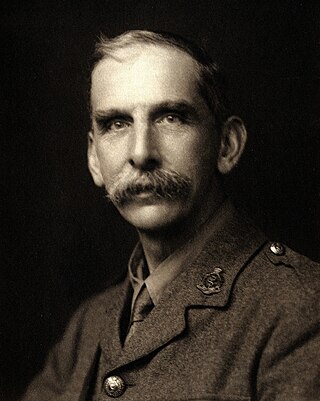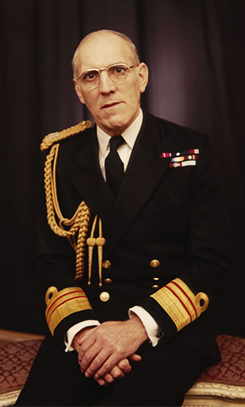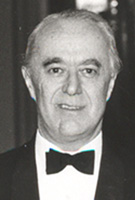Related Research Articles

Sir Victor Alexander Haden Horsley was a British scientist and professor.

Sir Jonathan Hutchinson, was an English surgeon, ophthalmologist, dermatologist, venereologist, and pathologist.
Medical missions in China by Protestant and Catholic physicians and surgeons of the 19th and early 20th centuries laid many foundations for modern medicine in China. Western medical missionaries established the first modern clinics and hospitals, provided the first training for nurses, and opened the first medical schools in China. Work was also done in opposition to the abuse of opium. Medical treatment and care came to many Chinese who were addicted, and eventually public and official opinion was influenced in favor of bringing an end to the destructive trade. By 1901, China was the most popular destination for medical missionaries. The 150 foreign physicians operated 128 hospitals and 245 dispensaries, treating 1.7 million patients. In 1894, male medical missionaries comprised 14 percent of all missionaries; women doctors were four percent. Modern medical education in China started in the early 20th century at hospitals run by international missionaries.
Russell Claude Brock, Baron Brock was a leading British chest and heart surgeon and one of the pioneers of modern open-heart surgery. His achievements were recognised by a knighthood in 1954, a life peerage in 1965, and a host of other awards.

Elliot Carr Cutler was an American surgeon, military physician, and medical educator. He was Moseley Professor of Surgery at Harvard Medical School, surgeon-in-chief at Peter Bent Brigham Hospital from 1932 to 1947, and a brigadier general in the U.S. Army Medical Corps.
Sir Kenelm Digby (1603–1665) was an English courtier, diplomat and Roman Catholic intellectual.
Kenelm Hubert Digby MBE was the proposer of the controversial 1933 "King and Country" debate in the Oxford Union who later became the Attorney General and a judge in Sarawak.
Sir Peter John Morris, AC, FRS, FMedSci, FRCP, FRCS was an Australian surgeon and Nuffield professor of surgery at the University of Oxford. Morris was President of the Royal College of Surgeons of England, founder of the Oxford Transplant Centre and director of the Centre for Evidence in Transplantation at the Royal College of Surgeons of England.

Sir Francis Gordon Bell, FRCS, FRCSEd, FRACS was a New Zealand surgeon who was professor of surgery at the University of Otago at Dunedin. He was a founder member of the Royal Australasian College of Surgeons and was elected its president in 1947. In the 1953 Coronation Honours, Bell was appointed a Knight Commander of the Order of the British Empire.

Surgeon Vice-Admiral Sir James Watt was a British surgeon, Medical Director-General of the Royal Navy, 1972–1977 and maritime historian.
Sir Edward Hughes was an eminent Melbourne colorectal surgeon. He was a professor of surgery at Monash University and served as president of the Royal Australasian College of Surgeons and chairman of the Menzies Foundation. He played a significant role in influencing the Victorian Government to become the first jurisdiction in the world to introduce legislation for the compulsory use of seat belts in motor vehicles.
Puliyur Krishnaswamy Duraiswami (1912–1974) was an Indian orthopedic surgeon, medical writer and the Director General of Health Services under the Government of India. Besides being a Fellow of the Royal College of Surgeons of England and a founder Fellow of the National Academy of Medical Sciences, he published several articles on orthopedics and was a recipient of Robert Jones Medal and the Presidential Merit Award of the British Orthopaedic Association. The Government of India awarded him the third highest civilian honour of the Padma Bhushan, in 1966, for his contributions to the Medical Science.
James Ware was a British surgeon and medical educator. He was affiliated with Karolinska Institute during the 1970s and 1980s, and later held professorships at the United Arab Emirates University, the International Medical University, the University of the Witwatersrand, the Chinese University of Hong Kong and Kuwait University. While also noted for his work in a number of surgical fields, his scholarly work later focused increasingly on the new field of medical education, in which he became a leading figure.
David Todd was a Hong Kong haematologist, the founding president of the Hong Kong College of Physicians and the Hong Kong Academy of Medicine. He was best known for transforming medical education and training in Hong Kong.

Marcus Beck was a British professor of surgery at University College Hospital. He was an early proponent of the germ theory of disease and promoted the discoveries of Louis Pasteur, Robert Koch, and Joseph Lister in surgical literature of the time. He gave his name to the Marcus Beck Library at the Royal Society of Medicine (RSM).

James Johnston Mason Brown OBE, FRCSEd was a Scottish paediatric surgeon. During World War II he served as a surgical specialist with the 8th Army in North Africa and Italy and was awarded the OBE for this service. As surgeon-in-chief at the Royal Hospital for Sick Children in Edinburgh, he edited the major textbook The Surgery of Childhood. He was the joint founder of the Scottish Surgical Paediatric Society and a founder member of the British Association of Paediatric Surgeons (BAPS), of which he became president. He was elected President of the Royal College of Surgeons of Edinburgh (RCSEd) in 1962 but died in office aged 56 years.
Gordon King, Chinese name Wang Guodong, was an English gynaecologist who taught in Hong Kong, China, Australia, and Kenya.

Gregory Paul Jordan was a British-Indian doctor and educator of Armenian descent. He served in various medical positions throughout colonial British Hong Kong, and was involved with various medical and educational institutions in the territory.
Herbert Alexander Haxton FRCS FRSE was a Scottish surgeon to the Royal Manchester Children's Hospital and the Manchester North Hospital and Crumpsall Hospital. He contributed to surgical techniques of suturing and investigated the function of the sympathetic nervous system in the sweating conditions hyperhidrosis and gustatory hyperhidrosis.
Guan Bee Ong OBE, PSM, DSc was a Hong Kong academic surgeon who was professor of surgery at the University of Hong Kong. Born in Raj of Sarawak, he acquired a reputation as a skilled and innovative surgeon in British Hong Kong, who encouraged original research among surgical trainees. Originally a general surgeon whose practice included cardiac and neurosurgery, under his leadership surgical specialities and subspecialties were developed in Hong Kong.
References
- 1 2 "DIGBY, Kenelm Hutchinson" in Who Was Who, A & C Black, 1920–2008; online edn. Oxford University Press. 2007. Retrieved 2009-02-13.
- 1 2 3 "K. H. Digby Memorial Fund" (PDF). Hong Kong University. Retrieved 2009-02-13.